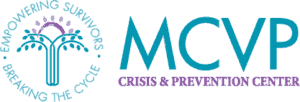Stalking Information
Stalking is a Crime.
Stalking is defined as a pattern of behavior directed at a specific person that would cause a reasonable person to feel fear. Stalking criminalizes acts that if separate from one another could be legal. Acts of stalking are usually committed by someone known to the person that experiences the acts. Though these acts may not have significance to outsiders, they may have significance for the person experiencing them due to this relationship. It is important to consider the pattern of behavior as well as the context in stalking, not just the individual acts.
An advocate can help you recognize the pattern of behavior and document it. Together you can explore your options and develop a safety plan.
Stalking is Different from Other Crimes...
While many crimes can involve a single incident, stalking is a pattern of behavior. This pattern of behavior can escalate so it’s important to be aware of the warning signs. The state of New Hampshire defines a pattern as two or more incidences.
Stalking
Warning Signs
- Repeatedly calls your phone, including hang-ups
- Follows you and shows up wherever you are
- Sends unwanted gifts, letters, texts, or emails
- Damages you home, car, or other property
- Monitors your phone calls or computer use, possibly through spyware
- Uses technology, like hidden cameras or GPS, to track where you go
- Drives by or lingers near your home, school, and/or work
- Threatens to hurt you, your family, friends, and/or pets
- Performs other actions that control, track and/or frighten you
- Uses other people to try to communicate with you like children, family, or friends
Subtle Side-Effects
of Experiencing Stalking
- Be fearful of what the stalker is capable of doing
- Feel vulnerable, unsafe, or not know who to trust
- Feel depressed, hopeless, angry, anxious, irritable, on-edge, and hyper-vigilant
- Have flashbacks, disturbing thoughts, feelings, or memories
- Feel confused, frustrated or isolated because other people don’t understand why you are afraid
- Miss work or school for fear of seeing your stalker
- Change your normal or preferred social media habits
Steps to Take if You Are Being Stalked
1. Notify Law Enforcement
If you believe you are being stalked, call the police right away. Be sure to tell them about any previous action taken and the results (i.e., the stalker was warned to stay away from you). Your local police department can advise you of your rights, additional safety measures, and how to obtain a protective/restraining order.
2. Document Everything
Record witnesses’ names, dates, times, locations, and what the stalker was doing, saying, wearing, driving (license plate no.), etc. If it can be done safely, take photos of the stalker. Law enforcement agencies log your complaint each time you call. Request a copy of each report.
3. Tell Family, Friends, Neighbors, and Co-Workers
Provide them with a description or photograph of the stalker. Ask them to watch for the stalker, document everything listed above, and give you the written account. Telling others of your concerns also provides a witness if needed.
4. Save All Written Material, Legal Documents, and Telephone Messages
Save and date all cards, letters, notes, and envelopes from the stalker. Obtain and keep copies of warrants, protective orders, court orders, etc.
5. Save All Written Material, Legal Documents, and Telephone Messages
Make use of your telephone provider’s tracing system and Caller ID. Dial *57 immediately after receiving a harassing phone call and the call will be traced for a small fee. Be sure to log the data and time of each successfully traced call. Save and date telephone messages, because they too, can be utilized as evidence.
IMPORTANT NOTE
Do NOT tape telephone conversations without telling the other person they are being taped beforehand. It is ILLEGAL to tape someone without their knowledge, rendering such evidence useless.
Personal Safety Suggestions
Altering your daily routine and being vigilant of your surroundings, as well as taking specific actions to make your location less easily known can help increase your safety. MCVP can help review specific actions to take. Some of these steps include:
- Change the locks of your home and/or car – always lock your doors even when in your home or automobile.
- Obtain a Post Office Box (PO Box) – give your addresses and phone number to as few people as possible.
- Know the locations of both the police and fire stations.
- Keep an emergency bag packed with clothing, money, medicine, important paperwork (passport, birth certificate, etc.) emergency telephone numbers, toys for your children, etc.
- Report all threats sent by mail to the local police or FBI.
- Alert neighbors about what is happening. Have a prearranged code or signal in case the person stalking you is near or at your home.
- Post a “No Trespass” sign on the edge of your property where it is clearly visible.
- Relocations – Some survivors of stalking choose to reloacte. If you decide to move, be sure you have all of your medical records, leave no paper trail through forwarded mail, do not leave new address with previous landlord or others. You may also be able to call the Social Security Office and request that your Social Security number be changed if you can prove that the person stalking you is using it to find you.
Taking Care of Yourself
Experiencing stalking and harassment is very stressful. It is important to develop and maintain a support system.
Keep in touch with friends who are supportive and understanding. Tell someone about each encounter with the stalker. You may experience range, terror, suspicions, an inability to trust anyone, depression, changes in sleeping and/or eating patterns, exhaustion, and/or frequent crying spells.
Your body and mind are simply reacting to this extreme stress. Talking to someone who is trained to work with stalking victims may help alleviate some of the symptoms that are interfering with other aspects of your life.
Remember, MCVP: Crisis & Prevention Center is an important resource and can provide you with additional safety recommendations, support, and assistance in understanding the legal system and options.
National Resources
SPARC: The Stalking Prevention, Awareness,
And Resource Center (SPARC) offers a variety of Information related to stalking, including
Information on stalking, safety planning, and
other resources.
NNEDV: The National Network to End Domestic
Violence contains safety tips, information, and
privacy strategies for survivors when using
technology.
One Love Foundation: The One Love Foundation
offers education and resources regarding healthy,
unhealthy and abusive relationships, including
stalking. They break down often confusing and
overwhelming information into engaging quick
reads.
www.joinonelove.org | 1 (866) 331-9474 or text
“loveis” to 1 (866) 331-9474
New Hampshire Resources
We are a team of dedicated individuals working toward a violence-free Monadnock Region. In addition to offering crisis intervention services, we have a dedicated prevention education team. Our direct services staff includes a full-time Family Violence Prevention Specialist, Shelter Advocate, Roving Advocate in Peterborough and Jaffrey, and a Housing First Advocate. We serve all of Cheshire County and 14 towns in western Hillsborough County. Our crisis hotline is answered 24 hours a day, 7 days a week by staff and trained volunteers. We offer crisis intervention and peer counseling in person and over the phone to survivors of domestic and sexual violence. We also provide emotional support, information about options and resources, assistance with problem solving, safety planning, and referrals.
www.mcvprevention.org | (603) 352-3782 or 1 (888) 511-6287
The New Hampshire Coalition Against Domestic & Sexual Violence creates safe and just communities through advocacy, prevention, and empowerment of anyone affected by sexual violence, domestic violence, stalking and human trafficking.
www.nhcadsv.org | 1 (866) 644-3574
603 Legal Aid provides free civil legal help to low-income people and does not charge clients for legal services. The attorneys in this program provide legal advice by telephone in areas of family law, housing, benefits and welfare, and will hear your problem and make appropriate referrals if necessary.
nhlegalaid.org | (800) 639-5290 or (603) 224-3333
If you or someone you know is experiencing stalking, there is help.
If you or someone you know is experiencing stalking, there is help. MCVP Advocates are available 24 hours a day. Call our confidential crisis line at (603) 352-3782 or 1 (888) 511-6287. Make sure to erase your call and browser history in case your phone and/or computer are being monitored.
For more on how to be supportive of a family member, teen or adult child, or friend that is experiencing stalking, visit our page on the topic here: Showing Support for Domestic Violence Survivors

